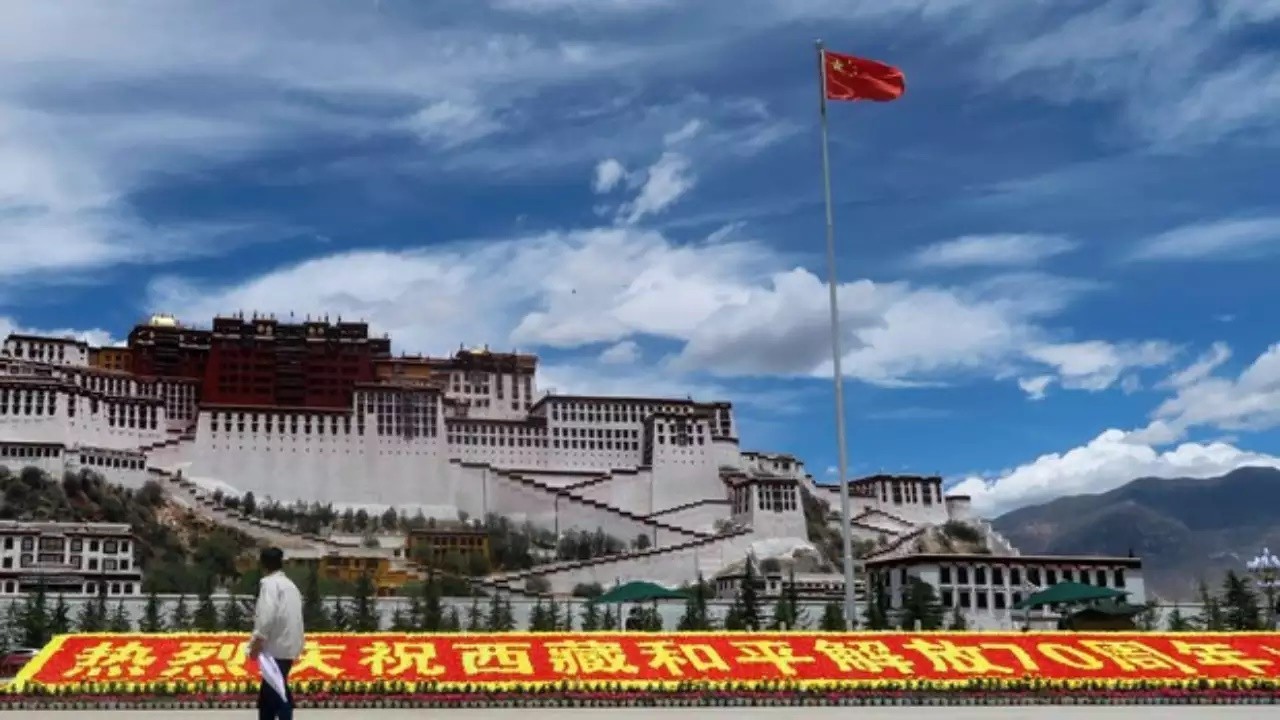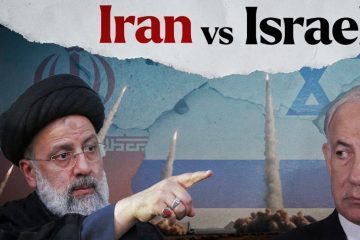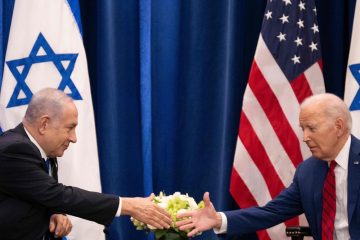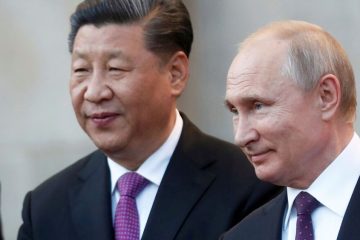China doesn’t want you to say ‘Tibet’ anymore

Tibet is no longer “Tibet,” not in China anyway.
Chinese officials are increasingly using the term “Xizang,” the official English spelling of the name that China’s ethnic Han majority applies to the Tibetan homeland on the country’s far western frontier.
The shift dovetails with a broad assimilation drive targeted at China’s ethnic minorities and outlying regions that has intensified under Chinese leader Xi Jinping, who has sought to forge a singular national identity—one centered on the Han majority and loyalty to the Communist Party.
Amid these efforts, Beijing has also been stepping up preparations for a fight over the choice of successor to the current Dalai Lama, the spiritual leader of the Tibetan people, who turns 89 in July. China’s officially atheist leadership has denounced him as a separatist, and insisted that they get to choose the next incarnation of the Dalai Lama.
For decades, Chinese officials and state media typically referred to “Tibet” in English-language communications, applying a name widely used across the West. That began to change in recent years, as China’s Foreign Ministry and a nationalistic party tabloid switched to using “Xizang,” the standard Romanization of the region’s Mandarin Chinese name that is pronounced, roughly, “shee-ZAHNG.”
Beijing has stepped up its usage of the “Xizang” label in recent months. At an academic seminar in August, Chinese scholars advocated replacing English references to “Tibet” with “Xizang,” a view that the party agency handling ethnic affairs promoted on social media. Two months later, the Chinese government arranged a diplomatic conference in the Tibetan city of Nyingchi, titled “Xizang Trans-Himalayan Forum for International Cooperation,” where Tibet was generally referred to as “Xizang” in English.
Major state-media outlets, such as the Xinhua News Agency, increasingly referred to “Xizang” in English-language reports.
The most authoritative use of “Xizang” came in November, when the Chinese government’s top publicity office published a white paper on the “Governance of Xizang,” departing from references to “Tibet” used in previous policy documents.
The semantic switch opens a new front in the Communist Party’s efforts to reshape global narratives on China in favor of its preferred nomenclature, particularly on what Beijing regards as its core interests, experts say.
Chinese officials will seek to popularize the “Xizang” label on the international stage—particularly in the Global South—by appealing to anti-Western sentiment, said Matthew Akester, an independent Tibet researcher based in the Indian town of Dharamshala, where the Tibetan government-in-exile is located. “There is an international pro-China constituency that may well be turned by something like that.”
Beijing might eventually use coercion as well, Akester says, including economic pressure and commercial boycotts against governments and businesses that continue to refer to “Tibet.” “There will be consequences for not using ‘Xizang,’” he predicted.
The Communist Party’s United Front Work Department, which handles religious and ethnic affairs; the State Council Information Office, the Chinese government’s publicity arm; and China’s Foreign Ministry didn’t respond to requests for comment.
The adoption of the “Xizang” label is “designed to fulfill their political ambition of legitimizing their claim over Tibet,” said Tenzin Lekshay, a spokesman for the Tibetan government-in-exile. “The Sino-Tibet conflict is longstanding, and changing the name will not resolve the problem,” he said. “Rather, it will create more complexity.”
China’s Communist Party has sought to consolidate its control over Tibet since sending troops into the region in 1950. Since then, Beijing has directed long-running efforts to assimilate ethnic Tibetans and quash what it calls separatist forces led by the Dalai Lama, who was a teenager when the People’s Republic took control of Tibet.
The assimilation drive intensified after Xi took power in late 2012. While his predecessors relied more on economic development as a way to naturally integrate ethnic minorities, he has taken a comparatively hard-line approach, with the party taking an active role in reshaping cultural identities.
In Tibet, Beijing has in recent years imposed increased restrictions on Tibetan religion, education and language, while boosting the government’s ability to surveil residents. Chinese officials generally reject claims that they are diluting or suppressing Tibetan culture, instead arguing that the Communist Party has improved lives and livelihoods for people in Tibet, while upholding their religious and ethnic identities.
Historians say the present-day Chinese name for Tibet, “Xizang,” dates back to China’s last imperial dynasty, the Qing. That name came from a Chinese transliteration of “Gtsang”—a reference to the name of one area within historical Tibet.
“The name ‘Xizang’ is wholly imbued with a Chinese viewpoint,” Elliot Sperling, an Indiana University historian of Tibet, wrote in 2011. “Indeed, one might say that use of that name subliminally reinforces it: The first syllable means ‘West;’ i.e., it situates Tibet according to the way it’s perceived from China.”
“The meaning of Xizang is essentially determined by politics,” Sperling wrote, pointing to differences in how various Chinese regimes defined the region’s boundaries. China’s current government doesn’t have an officially authorized Chinese term for “the traditional and historic realm of Tibet,” wrote Sperling, who died in 2017.
Chinese authorities have used “Xizang” in the past, though sporadically. For instance, the Tibet regional government has used xizang.gov.cn as the main address for its website since at least the mid-2000s, though Chinese officials at the time generally referred to “Tibet” in English remarks.
“Tibet” remained the prevalent English label well into the Xi era. For instance, a government white paper published in 2021 by the State Council Information Office was titled “Tibet Since 1951: Liberation, Development and Prosperity.”
The latest white paper, published in November, identifies the region as “Xizang” throughout the text, though “Tibet” still appeared in references to an airline and a museum that bear the name, as well as the Qinghai-Tibet Plateau. It also used “Tibetan” as a demonym and adjective in references to local residents and culture.
China’s Foreign Ministry spearheaded the use of “Xizang,” using the standard Romanization in official statements and translations with increasing frequency over recent years. For instance, when Foreign Minister Wang Yi hosted an event on Tibet in 2021, the ministry published a summary of his remarks that referred to the region as “Xizang.”
Global Times, a nationalistic party-run tabloid, has also been rendering Tibet as “Xizang” in its English-language reports about the region since 2021.
The party’s United Front Work Department published a social-media post in August that discussed the “Xizang” label, citing Chinese academics as saying that “Xizang” is a more accurate English name for China’s Tibet Autonomous Region, a provincial-level administrative division that Beijing formally set up in the 1960s.
The article noted that “Tibet” has often been used to refer more broadly to areas influenced by Tibetan culture, which includes the Tibet Autonomous Region and parts of neighboring provinces. “This wrong concept has been around for a long time,” and distorted international views about the geographical scope of Xizang, Wang Linping, a professor at Harbin Engineering University, was quoted as saying.
The article also argued that rendering Tibet as “Xizang” is justified for the sake of complying with regulatory requirements, citing a Chinese government decision in 1978 to uniformly use Beijing’s official Pinyin Romanization system to spell the names of Chinese people and places.
“Using Pinyin means acting in accordance with the law and implementing our relevant laws and regulations,” Lian Xiangmin, deputy director-general of the state-affiliated China Tibetology Research Center, was quoted as saying.
Some people in the West will have different opinions, but China handles Tibet-related affairs following the law, Lian said. “Whether they can accept it or not is their problem.”






